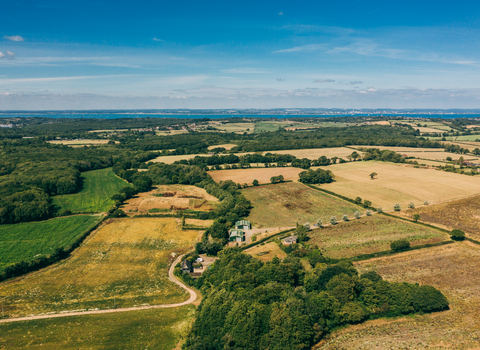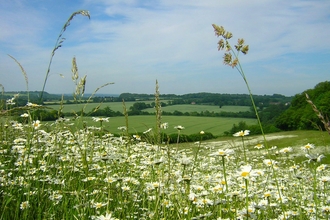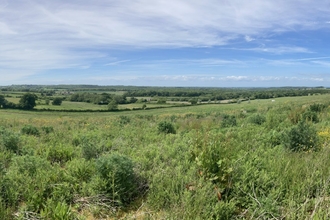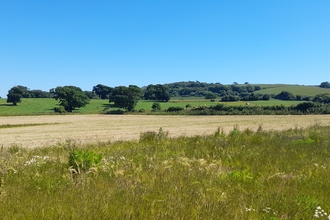The scale of work needed to put nature in recovery can seem overwhelming, but together we have the tools and knowledge to bring about much-needed change. In busy south Hampshire, we appreciate the need for new housing on sites allocated in Local Plans. While some proposed local developments are unacceptable due to the impact on wildlife and protected habitats, other developments are acceptable as long as suitable mitigation is put in place. By demonstrating ways to provide this mitigation, we are promoting solutions that deliver the best deal for wildlife and help achieve our vision for nature's recovery.
Where mitigation for the negative impacts of development can't be provided onsite, mitigation must be delivered elsewhere. To fund the restoration of habitats to mitigate for losses and/or the impact of increased nutrient inputs, developers can purchase environmental credits for nitrates, phosphates and units for biodiversity net gain (BNG). We are able to provide environmental credits through our nutrient reduction programme and BNG schemes.
If you wish to enquire about purchasing environmental credits, please use our Expression of Interest form.
How our mitigation schemes work
We believe we must work with planners and developers to promote sustainable development that gives back to nature more than it takes away. We will continue to campaign against developments that are damaging to nature and push for stronger policies and regulations to protect the natural environment.
Mitigation is not a new approach and many of today’s much-loved nature reserves (such as Blashford Lakes, Fishlake Meadows, Swanwick Lakes, Testwood Lakes and Barton Meadows) were secured as forms of mitigation through the planning system.
We are working with Natural England, local authorities and developers to deliver new mitigation sites. In choosing to be involved, we aim to provide a nature-based mitigation option. One that demonstrates that protecting and improving the environment is essential to a strong and green economy and that solutions are not only possible but can deliver additional benefits for wildlife and people as well.
By accepting a planned development into our programme, we are not endorsing the development. Our goal is to address damage to our internationally important habitats and then enhance biodiversity by creating new areas for wildlife to thrive - aiming to reverse the declines in wildlife we have seen in recent decades.
Our nature-based solutions work by acquiring land that has the potential to reduce inputs of nutrients by returning the land to natural habitats, such as traditionally grazed meadows, wetlands, or woodlands.
The benefits of our programme include:
· Prioritising the restoration of wildlife at all our sites.
· Securing sites for the future and managing them in perpetuity.
· Developments requiring mitigation must pass our screening process, demonstrate biodiversity net gain and follow the mitigation hierarchy.
Our ethical principles
We are clear that any mitigation we deliver must meet our ethical principles. The Trust will only provide nitrate mitigation for developments that have satisfied all other planning and legal requirements, particularly those relating to biodiversity. The planning process requires all developments to demonstrate that their proposals will not result in unacceptable impacts on existing important biodiversity. We have already refused to provide mitigation for developments to which we object.
Where possible we will give preference to those who agree to incorporate high-quality wildlife gains into their plans, including contributing positively to the local nature recovery network.
We are committed to working positively with developers wherever possible to find ways of incorporating wildlife benefits into proposals. We feel it is important that we retain the ultimate decision on whether to be involved in, or provide mitigation for, any particular project.




